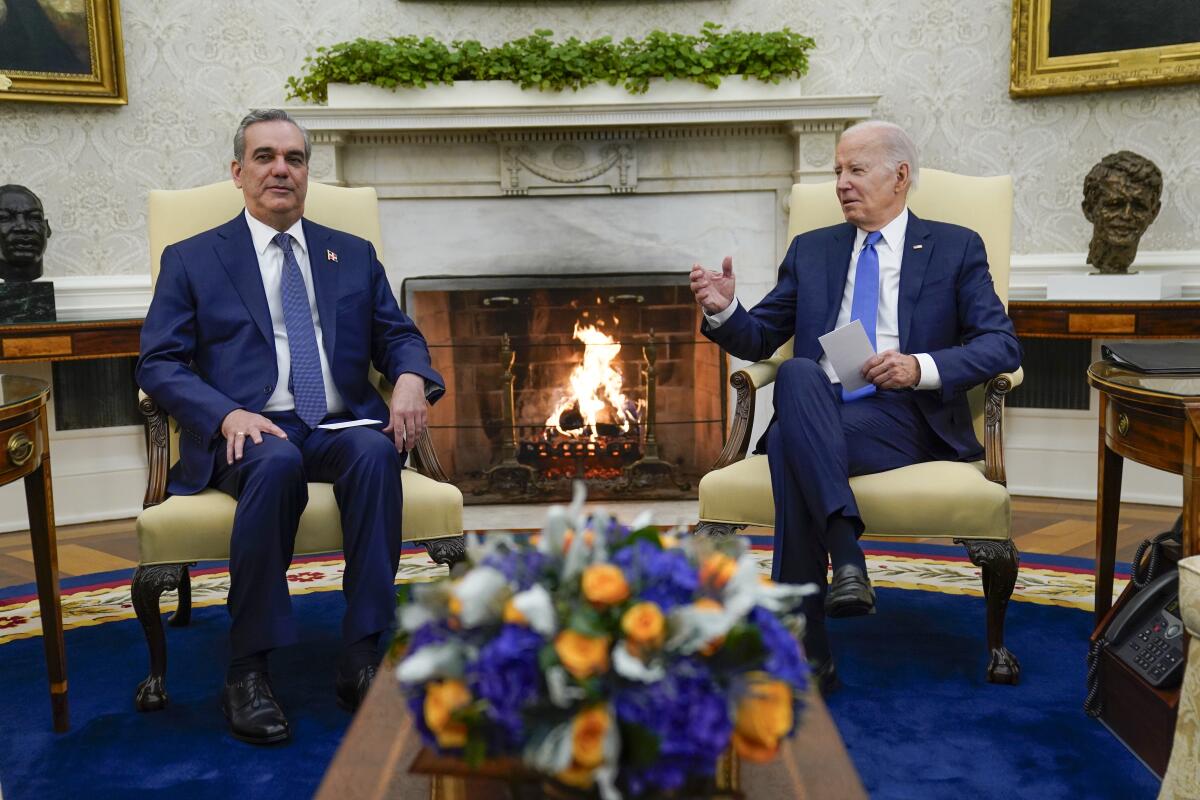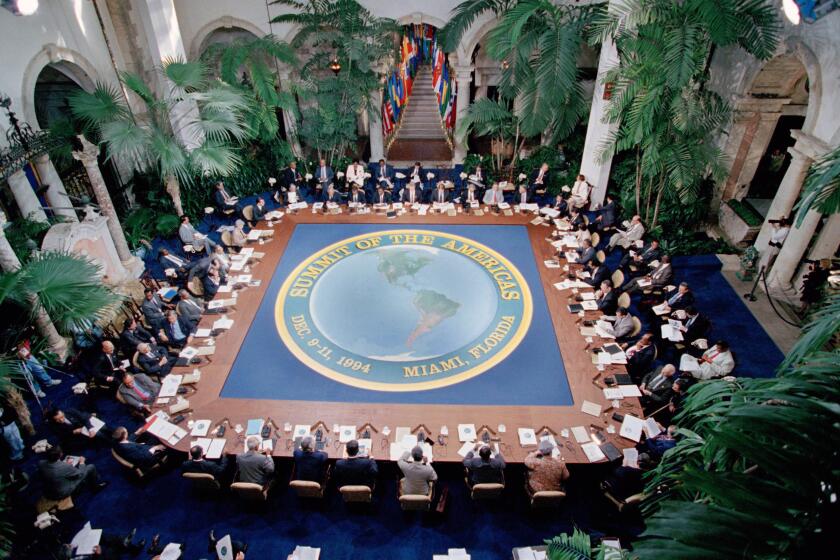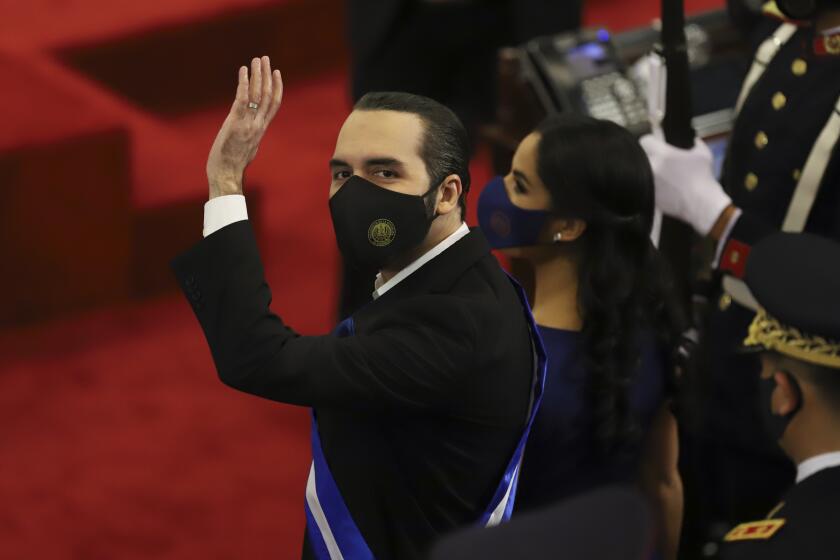At Americas summit, Biden pledges alternative to Chinese-led infrastructure, loans

- Share via
WASHINGTON — President Biden on Friday welcomed government leaders from countries across the Americas to an economic summit by pledging to increase U.S. investment in the region in part to counter China’s influence.
The U.S. president did not specifically mention China in his opening remarks at the first Americas Partnership for Economic Prosperity Leaders’ Summit. But Biden openly alluded to the country that has emerged as a chief geopolitical competitor to the United States and has offered development loans to countries in the Western Hemisphere.
“We want to make sure that our closest neighbors know they have a real choice between debt trap diplomacy and high-quality, transparent approaches to infrastructure and to development,” Biden said. “By combining the commitment of the United States government to mitigate investment risk with the agility of private sector financing, we believe we can deliver gains for workers and families throughout the region.”
The first Summit of the Americas, in Miami in 1994, opened up an era of promise. Since then, democratic backsliding and a return to autocratic leaders has threatened to overshadow the event.
Among the other topics being discussed at the summit are migration, supply chains and efforts geared toward environmental sustainability.
Along with Biden, officials from Barbados, Canada, Mexico, Chile, Colombia, the Dominican Republic, Costa Rica, Ecuador, Peru, Uruguay and Panama attended summit events.
Friday’s event was announced last year at the Summit of the Americas in Los Angeles. The focus on trade comes as competition has intensified between the United States and China, the world’s two largest economies. Biden has provided government incentives to build U.S. infrastructure and for companies to construct new factories. But after the COVID-19 pandemic disrupted manufacturing and global shipping, the U.S. also has made an effort to diversify trade and reduce dependence on Chinese manufacturing.
In 2022, the U.S. exported $1.2 trillion worth of goods and services to other countries in the Western Hemisphere, according to the U.S. trade representative. It also imported $1.2 trillion in goods and services from those countries. But the majority of that trade was with Canada and Mexico.
A new Cold War is brewing in Latin America between the U.S. and China amid a shifting global order driven more by economics and technology than by politics and ideology.
By contrast, the U.S. imported $562.9 billion worth of goods and services from China last year.
Treasury Secretary Janet L. Yellen outlined the Biden administration’s goals in a Thursday speech at the Inter-American Development Bank. The U.S. wants to diversify supply chains with “trusted partners and allies,” a strategy that she said had “tremendous potential benefits for fueling growth in Latin America and the Caribbean.”
Yellen, who regularly talks about her “friendshoring” strategy for increasing supply chain resilience by working primarily with friendly nations as opposed to geopolitical rivals such as China, laid out her vision of new U.S. investment in South America at the development bank.
The Inter-American Development Bank, which is the biggest multilateral lender to Latin America, would support new projects through grants, lending and new programs. The U.S. is the bank’s largest shareholder, with 30% of voting rights.
Increasingly, policymakers in the U.S. have expressed concern about China’s influence at the bank. Although the Asian superpower holds less than 0.1% of voting rights, it has large economic stakes in some of the bank’s 48 member countries.
More to Read
Sign up for Essential California
The most important California stories and recommendations in your inbox every morning.
You may occasionally receive promotional content from the Los Angeles Times.












